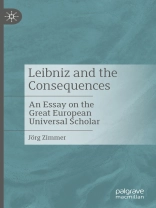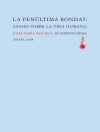Leibniz was probably the last universal scholar in modern times who made original and innovative achievements in all the essential fields of knowledge of his time: as a reform-oriented lawyer, a multilateral thinking diplomat, as a mathematician of infinitesimal calculus, as the inventor of a calculating machine and in the mining of horizontal wind power, as an organizer of science and as one of the first historians who strived for source-critical methodical objectivity. However, this baroque diversity can only be understood from the center of a monadological philosophy, which wants to establish the unity of scientific worldview and metaphysical concept of the world. It is distorted in the classical reception because only Leibniz the Theodicy was known. The topicality of Leibniz today consists in re-exposing the original basic idea of unity in diversity and asking how it can be made fruitful for philosophical and political thought in the 21st century.
This book is a translation of the original German 1st edition Leibniz und die Folgen by Jörg Zimmer, published by J.B. Metzler, imprint of Springer-Verlag Gmb H, part of Springer Nature in 2018. The translation was done with the help of artificial intelligence (machine translation by the service Deep L.com). A subsequent human revision was done primarily in terms of content, so that the book will read stylistically differently from a conventional translation. Springer Nature works continuously to further the development of tools for the production of books and on the related technologies to support the authors.
Tabella dei contenuti
Introduction.- Leibniz in context: the life of a polymath.- Leibniz and the problem of metaphysics.- Leibniz reception from the Enlightenment to Hegel.- Perspectives on Leibniz.- Unity in multiplicity: Leibniz today.- Bibliography.
Circa l’autore
Prof. Dr. Jörg Zimmer studied philosophy and literature in Osnabrück and has been professor of philosophy at the Spanish University of Girona since 1997.












